Despite Water Scarcity, a Green Summer in Jenin
Posted in: Voices from the field
Is there a sight more beautiful than lush fields of green?
But fields need water and in Palestine, water is both the dilemma and the solution. The scarcity of water in the West Bank, particularly, has inspired us at Anera to think creatively. Why not make use of a non-traditional source of water that just recently became available in Palestine—recycled wastewater?
Our water recycling project started in 2013 on the farms of Jenin in the northern West Bank. This four-year journey has not been easy, but the end result is rewarding beyond description.
I always feel like the land gives from its heart. The same can be said about our team of laborers, farmers and diverse professionals who have given us their best. Together as a harmonious team, we built a project that will serve Palestine for many years to come—a project others can learn from and build upon.
Harsh Reality on Palestine Farms
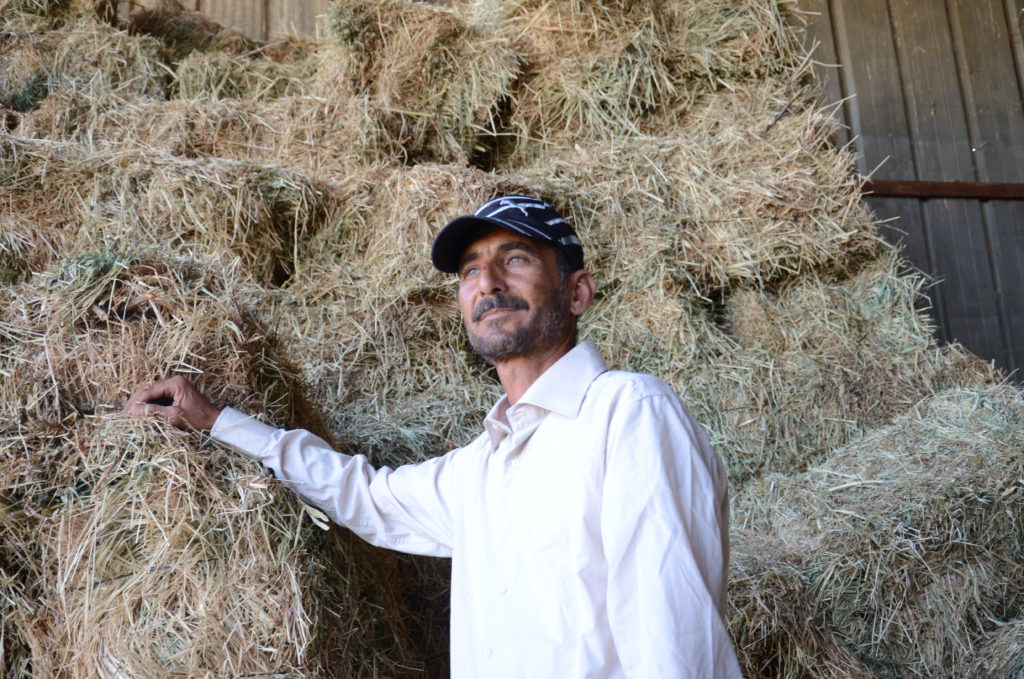
We started with acre upon acre of severely parched soil in Jenin. The environment was polluted by wastewater runoff as crops continued to dry up. The fields had been neglected for years and were left uncultivated during summer. This was mainly due to the scarcity of water and farmers’ lack of financial resources.
Some farmers in the West Bank and Gaza are forced to buy expensive potable water to irrigate their fields. As a result, there are only small reclaimed patches of green amongst vast dry, brown expanses. Even more sadly, we’re talking about the Marj Ben Amer area of Jenin—a place with promising plains, deep fertile soil and coastal warm weather. Something had to be done to revive it.
Some farmers were hesitant to be part of the project because it relied on an unconventional source of water. But it didn’t take long to convince them of its power to impact the agricultural sector. After visits to other locations (locally and in Jordan) where treated wastewater is used effectively, and after a comprehensive training on handling and using the wastewater, farmers looked forward to seeing their plots of land flourish, finally.
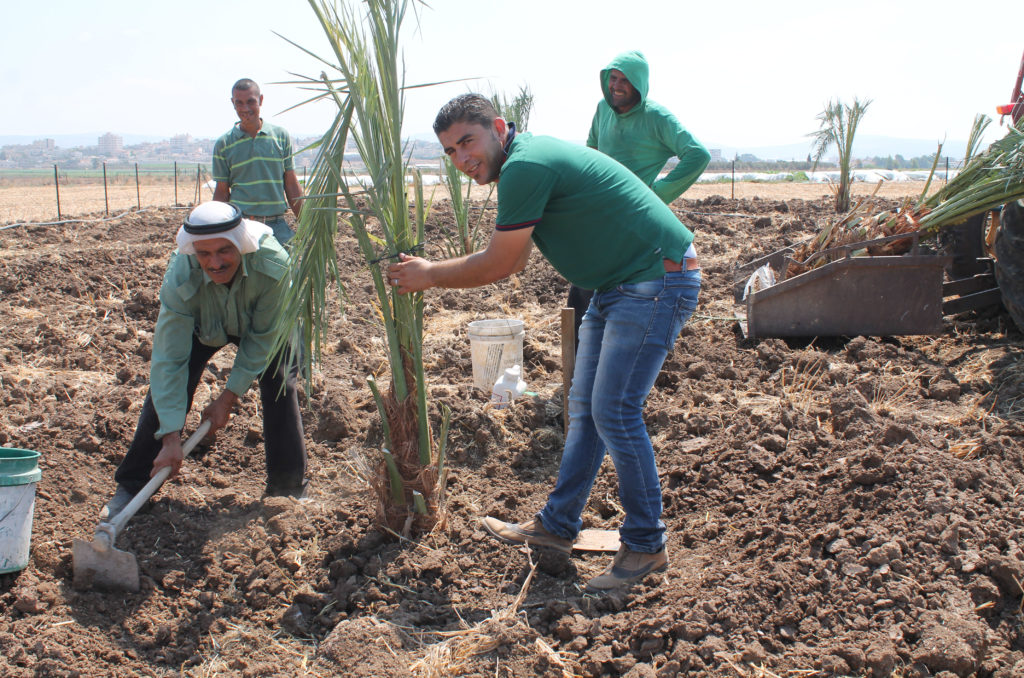
The project began to materialize inside the new Jenin Wastewater Treatment Plant, where Anera built a water filtration and distribution network to reach fields owned by 70 farming families. Then, we established a farmers’ cooperative to run and maintain the project in the future.
Today, this is how the system works: a reservoir collects and treats the reclaimed water. A compressed, closed filtration system further improves the quality of the treated water, preventing the clogging of the drip irrigation system. A chlorination unit then reduces biological contamination. Three pumps supply water through 12 miles of pipes, covering an area of over 740 acres.
We buried irrigation network of drip lines underground. This protects the environment through minimizing contact between the crops and treated water.
Farmers Forge New Milestones
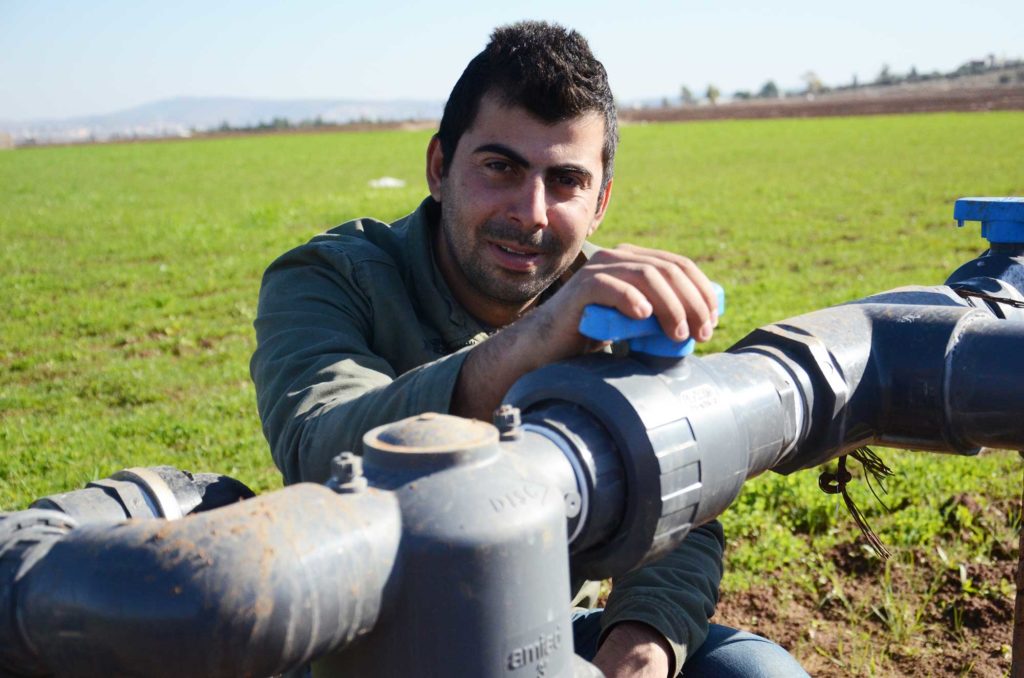

Odai grows alfalfa crops on his farm in Jenin, using recycled wastewater.
The beginning of a long journey started with literally breaking ground. The first gush of water from the pipes carried promises of a better future for these 70 Palestinian farmers. There was nothing more exciting than the powerful roar of the pumps as they forced water out into the new network. We were so anxious, and so excited.
As the preparation phase came to an end and the components came together, we delved into the heart of the program: planting and farming. After leveling and clearing fields in preparation for planting, Anera provided alfalfa seeds and let the subsurface drip pipes do their magic. When the first seedlings surfaced, we were all elated. The future was staring right back at us. The first harvest was indeed a proud day for all of the farmers and all of us staff members at Anera.
Inaugurating a Successful Project
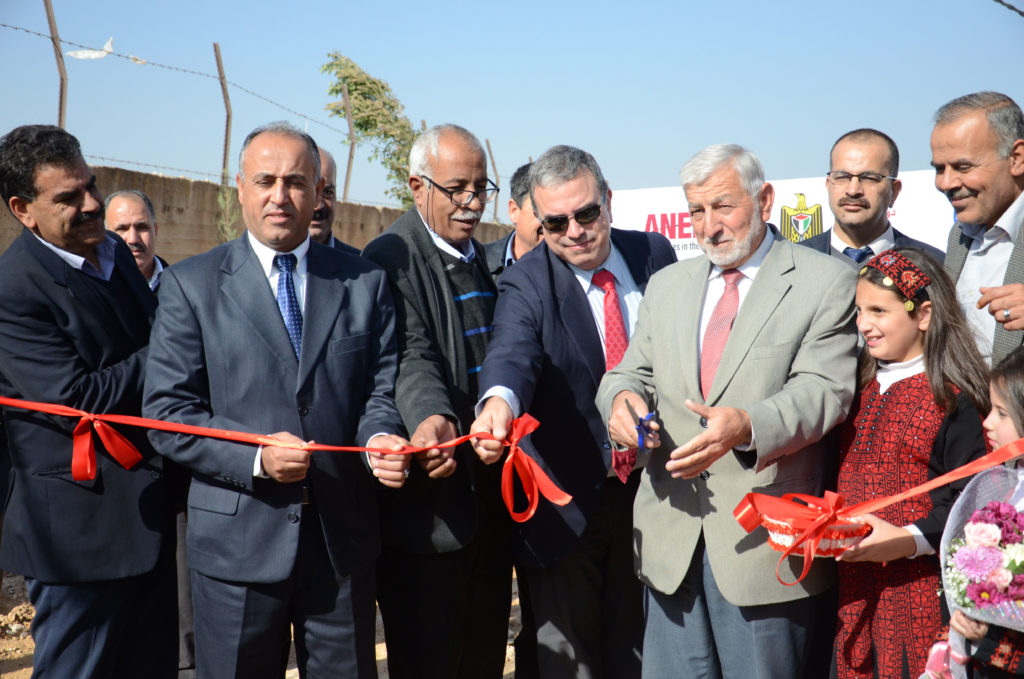
Late last year, Anera introduced this unique project (alongside the minister of agriculture) to local and international non-governmental organizations. They were all highly impressed and inspired. Infrastructure work had finally been completed and the water distribution network was functioning flawlessly. Fields were already lush with sprouts ready to harvest. It was a pivotal moment, because from then on, the project has been entirely entrusted to the farmers of Jenin and the Ministry of Agriculture.
The minister, among other guests, inspected the treatment plant and the fields of alfalfa, met farmers and saw the harvest in full swing. His presence at the inauguration and his contributions have meant a great deal to all of us. It showed the Ministry’s pride as a partner with Anera and its commitment to seeing the project continue and develop. The minister emphasized the project’s significance as a national project for Palestine.
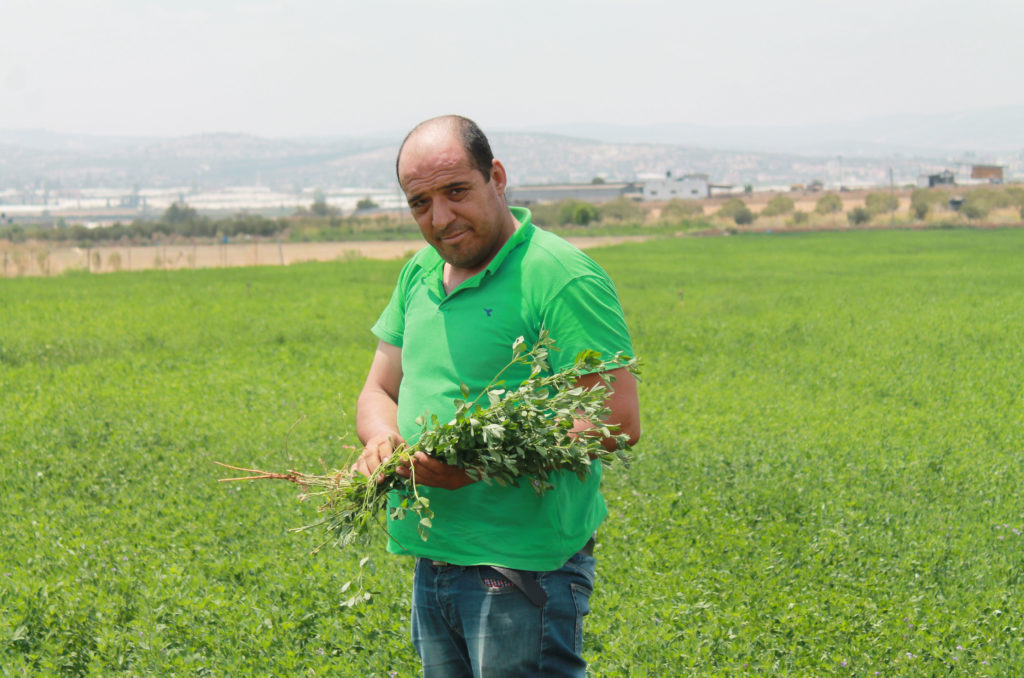
I don’t see the wastewater treatment station and pipe network as a cluster of structures, but as the shining, collective example of teamwork. It’s a testimony to the blood and sweat of the architects, site engineers and workers who made it happen. We all have a little piece of this project that we carry within us as we move forward.
Today I can tour Marj Ben Amer feeling hopeful, because I finally see vibrant green fields in an area that once looked like a desert during summer. I’d like to see those green patches blanket all of the land in the near future.
We leave this project in the capable hands of farmers in the co-op. They are the same hands that feed our families, hands that plant and nourish, not destroy. The co-op farmers have a serious legacy to carry on and nurture. I am full of hope that this project will prosper and reach more farms and families with hard work and determination. This project is a gift we give back to the fertile land of Palestine. This land has tirelessly provided with us with its bounty and love. We still have much more to give.
OUR BLOG
Related
In this log, Anera provides updates on unfolding war in Palestine and our response. Please stay tuned here for the latest information. To subscribe for weekly updates via SMS on our response in Gaza, text GAZA to 1-866-549-0055. Questions? See…
In this log, Anera provides regular updates on unfolding hostilities in Lebanon and our response efforts. Our community makes our emergency response possible. Please consider donating today. Our team is working around the clock to expand this assistance, but we…
Every year since 2007, when it was established by the United Nations, the world marks World Diabetes Day on November 14. #WorldDiabetesDay 2024 This year on World Diabetes Day, Anera holds in our hearts the millions around the world –…
